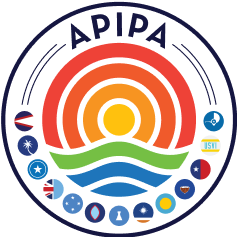APIPA 2023 Courses
The APIPA 2023 Conference is offering twenty courses in plenary, general and technical tracks from August 28 to September 01, 2023. Two concurrent courses will be offered Monday-Friday; participants may only join one of those courses on each of those days.
Plenary
Stakeholders are demanding information quickly and auditors need to provide impactful high-quality oversight. Today, more information is needed quickly, providing new opportunities for audit offices. Nicki Miller, the Deputy Assistant Inspector General at the U.S. Department of the Interior’s Office of Inspector General will highlight opportunities to navigate this demand for better oversight with fewer resources.
.

Nicki Miller
Washington, DC
Plenary
The closing plenary will feature short presentations and a panel discussion with APIPA member offices. These presentations and discussion will highlight examples of current work and provide a template for next steps for accountability and auditing in the region. Graduate School USA instructor, Mr. Drummond Kahn, will facilitate the session

Drummond Kahn
Portland, OR
Audit
Great organizations need leaders who see their role differently than just being super technical staff. This highly interactive course will help staff cross the threshold toward becoming super leaders by understanding what makes a good leader, how to motivate others, and create an environment of accountability for high performance. This course will examine the traits, characteristics and styles of successful managers and leaders that can be learned and practiced, as well as why people in leadership positions often fail. We will explore ways to inspire and motivate staff through constructive coaching, growth opportunities and appreciation. This session also explores the communication tools, approaches, and techniques to inspire a new level of performance accountability, self-awareness, innovation and commitment through empowerment and ownership.

Michael Binder
Washington, DC
Audit
This session will discuss the various types of audits that are currently performed, why each type of audit has a specific purpose, the various standards that apply to audits, the various reporting requirements, and some basic auditing techniques related to various transactions classes, account balances, disclosures and other events

Christopher Pembrook
Oklahoma City, OK
Audit
Creative and Critical Thinking for Auditors explores why creative and critical thinking are essential tools of auditor providence that should be applied throughout all phases of the audit process. The class will discuss personal and organizational challenges to creative thinking and change, and ways to overcome the natural resistance to change for breakthrough ways of seeing root causes of problems and considering new possible solutions. This course will include brain training exercises and tools to get participants to think more abstractly to look beyond the obvious, to challenge the status quo, and to use process techniques for generating new ideas for action. This class will explore the power of “why” in looking for root causes of problems, and the power of the possible in considering new opportunities and threats for forward-thinking recommendations.

Michael Binder
Washington, DC
Audit
The possibility of fraud in government procurement presents a constant risk. Learn to recognize the indicators of procurement fraud in different government contracts and to develop audit strategies to identify and quantify the extent of fraud in specific government contracting programs. Using actual examples from past procurement fraud cases, learn about traditional fraud schemes involving false statements, false claims, product substitution, accounting frauds and minority/woman/small business front operations. Focus on identifying the indicators of fraud, as well as criminal, civil, administrative and contractual actions in response to fraud.

Drummond Kahn
Portland, OR
Audit
In this session we will explore how to brainstorm and develop testing procedures to pull the threads and find fraud. We will also discuss fraud red flags and how investigations work within the U.S. Department of the Interior’s Office of Inspector General.

Katelyn Bell
Denver, CO

David House
Denver, CO
Audit Supervisory
Small governments and close communities sometimes face unique challenges in designing and implementing internal control systems. In this session, we will highlight various examples of these challenges and explore ways to maintain proper oversight responsibilities. We will discuss various case studies from prior OIG audits and investigations.

Nicki Miller
Washington, DC
Audit Supervisory
This session will equip participants with a range of tools to enhance performance auditing in their jurisdictions, from audit planning to audit fieldwork to reporting, considering the elements of a finding, the types and tests of evidence, and strategies to improve audit reporting. We’ll cover time-tested techniques to focus audit messages, answer objectives clearly, and prepare high-impact reports. From assessing risk to writing reports, this session will provide tools and techniques in advanced performance auditing.

Drummond Kahn
Portland, OR
Audit Supervisory
APIPA Peer Review and Yellow Book Update (Includes APIPA Principals Meeting). As APIPA completes its current series of external quality control reviews (“peer reviews”), we can review the strengths and areas for improvement described in peer reviews that apply to offices across the Pacific. For audits beginning on or after July 1, 2019, the 2018 revision of Government Auditing Standards will apply. We’ll discuss the status of changes in auditing standards, improving audit office policy and procedure manuals, and focusing on audit documentation to speed and aid the peer review process now and in the next series of reviews.

Drummond Kahn
Portland, OR
Audit Supervisory
Managing positive and productive relationships throughout the audit, directing, coaching or working with members of the audit team, and dealing with auditees, organizational management and external stakeholders can be emotionally challenging and often confrontational. Auditors often must deal with difficult people in difficult situations - and must deal with the auditees! This executive seminar will examine the emotionally intelligent competencies and communication skills necessary to maintain control, and better connect with people in defusing angst and in building positive, cooperative relationships for constructive problem solving and inspired action. We will explore differences in personality types that cause misunderstandings, how to manage your own hot buttons, and how to manage difficult personality types or potentially contentious situations for positive outcomes.

Michael Binder
Washington, DC
Audit Supervisory
From electronic workpapers and innovative writing and report formats, auditors are using new techniques and processes throughout the audit cycle. This session will consider, in workshop format, new techniques and processes in audit tools ranging from workpapers to graphics and from report design to clear writing. Bring your best practices, ideas, and questions for this interactive workshop on techniques to streamline the audit process from design to fieldwork to reporting.

Christopher Pembrook
Oklahoma City, OK
Finance
This active 1½ day course provides an introduction to the basics of accounting and financial reporting for governmental entities. Participants will gain a working knowledge of fund types and categories and learn how to record routine transactions for governmental activities. Internal controls as they apply to the accounting cycle and good accounting practice will be emphasized throughout the course. The session emphasizes hands-on practice in the accounting cycle process, from recording a transaction to preparing financial statements. Participants will leave the course with a more complete understanding of accounting terminology, the recording process, the role played by reconciliations, and the preparation of financial statements. No advanced accounting knowledge is necessary.

Jeanne Yamamura
Reno, NV
Finance
This session will take a detailed look into more recent GASB standards that have been issued and become applicable, including GASB 87 on Leases, GASB 96 related to Subscription-Based Information Technology Arrangements (SBITA), Statement 94 on Public-Private or Public-Public Partnerships (P3s), and many more. In addition, this session will take a look at the future of standard-setting and where the GASB may be going next.

Christopher Pembrook
Oklahoma City, OK
Finance
This course will cover the latest audit findings in grants management. It will equip program managers with the necessary tools to comprehend the requirements for addressing issues and avoiding the repetition of the same errors. To improve efficiency and effectiveness in fiscal management, it is important to have strong internal controls and a clear understanding of the federal spending rules. This session will assist your organization in defining and clarifying requirements and expectations for internal control over grants management and provide practical tools to update your policies and procedures.

David Rykken
Washington, DC
Finance
The course is designed for auditors and finance professionals at all levels to assess and improve their ability to make clear, wellstructured and convincing presentations. Professionals must use the power of clear communication and the power of persuasion to give effective formal and informal presentations, including briefings to audit management, budget committees, auditees, peers, at entrance and exit conferences and others in conducting business. An effective presentation requires a focused message, addressing the concerns of the audience that is well arranged and skillfully delivered. This is a practical course where participants will prepare, give and critique several presentations with the opportunity for self-assessment, coaching and improvement.

Michael Binder
Washington, DC
Advanced Finance and Management
Uniform Administrative Requirements, Cost Principles, and Audit Requirements for Federal Awards have been implemented to reduce administrative burden and increase oversight. Organizations need to understand how these regulations affect their processes. By emphasizing the actions mandated by the uniform guidance and offering strategies and recommendations on improving outcomes through better communication and comprehension, this course will serve as a reminder of the compliance requirements for grants management. Professionals can benefit from reviewing the administrative and cost principles sections of 2 CFR Part 200. After completing this session, they will be able to identify regulatory changes, determine necessary actions, and utilize practical tools to update policies and procedures.

David Rykken
Washington, DC
Advanced Finance and Management
The Acquisition, Communication, and Leadership Skills for Grants course emphasizes using effective communication, leadership, and teamwork skills to enhance program outputs and outcomes. During the course, participants will learn how to improve the acquisition process and avoid common grants and financial management issues. It is crucial to recognize how communication can aid in managing conflicts. Utilize your leadership abilities to enhance project performance, collaborate efficiently with your team for successful results, implement practical strategies to manage your grant, and address common issues that may arise.

David Rykken
Washington, DC
Advanced Finance and Management
This course addresses compliance requirements and includes coverage of the Single Audit, findings, and corrective action plans. The grant reporting function and process are also reviewed as are the links to the governmental accounting system. Participants will leave the course with improved knowledge and skills in understanding the Single Audit Report and taking appropriate action.

Jeanne Yamamura
Reno, NV
Advanced Finance and Management
The American Institute of CPAs Auditing Standards Board released SQMS 1 and SQMS 2 which require a new quality management system to govern the provision of professional services. Government audit organizations may want to consider adopting some or all of the new standards as they, too, aim for the performance of high-quality engagements.

Jeanne Yamamura
Reno, NV
 +1.808.523.1650
+1.808.523.1650





 CONTINUE
CONTINUE